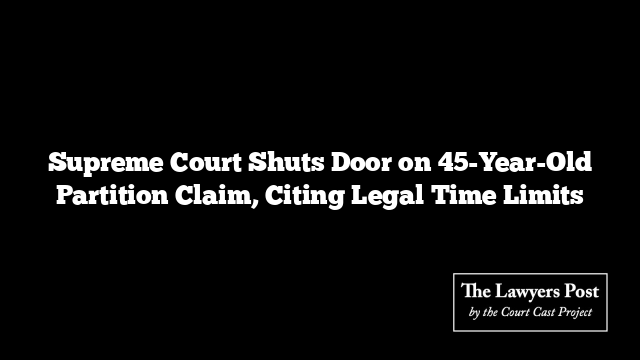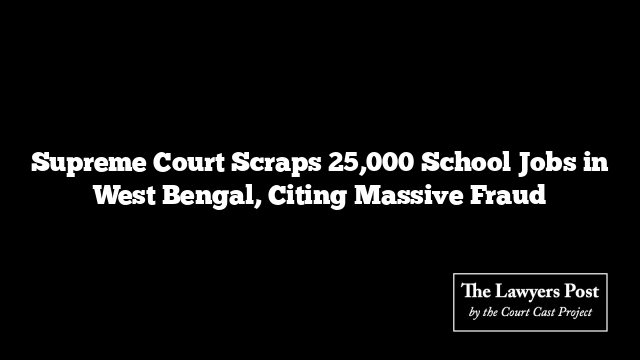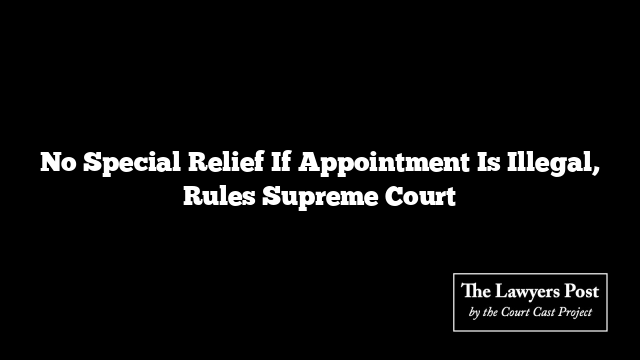In a decisive ruling, the Supreme Court has dismissed a long-dormant partition suit, emphasizing that the clock on such claims starts ticking from the date of sale deed registration. The case, which surfaced nearly five decades after the disputed property transaction, was deemed legally time-barred.
The dispute revolved around ancestral property in Bengaluru, where an oral partition allegedly took place in 1968. A decade later, in 1978, registered sale deeds formalized the division. Yet, the plaintiffs waited until 2023—45 years after the sale deeds—to challenge the arrangement.
The trial court promptly rejected the suit under Order 7 Rule 11 of the Civil Procedure Code (CPC), citing the statute of limitations. However, the High Court later revived the matter, sending it back for reconsideration, arguing that a triable issue existed. This prompted the defendants to escalate the case to the Supreme Court.
The apex court, overturning the High Court’s ruling, reaffirmed the principle that property sale deed registration serves as constructive notice to all concerned parties. Referencing past judgments, the bench—comprising Justices Sudhanshu Dhulia and K. Vinod Chandran—concluded that the plaintiffs’ inaction for decades nullified their claim.
“The predecessors of the plaintiffs had clear notice of the registered sale deeds from 1978. No challenge was made in the lifetime of the original owner, nor was partition sought. Reviving rights after 45 years is legally untenable,” the judgment stated.
The ruling reinforces that once a property transaction is publicly recorded, legal claims must be made within the prescribed time limit, preventing endless litigation over settled matters.





